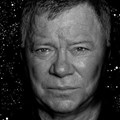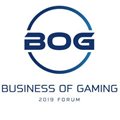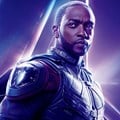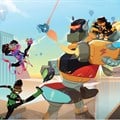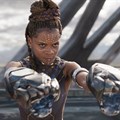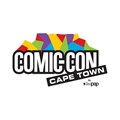#WomensMonth: Weaving the business of gaming into Comic Con Africa

Following last year’s success, the second-ever Comic Con Africa is set to take place from 21 to 24 September at Gallagher Convention Centre, with the welcome addition of the Business of Gaming Forum 2019 on 23 September.
Set to strongly focus on esports, branded gaming and game development, this is seen as a ‘level up’ of sorts for the Forum, as the digital video gaming sector is one of the biggest success stories in the SA entertainment and media industries, having shifted from hobbyist activity to viable career choice, yet it’s still murky ground with investors struggling to understand the sector’s investment opportunities.
Here Weaving, who is also a finalist in the Standard Bank Top Women Awards for second year and role model for gender empowerment, explains how they put fans first, the significance of integrating gaming into the Comic Con Africa portfolio, and how Comic Con Africa speaks to businesses and brands’ intrigue of this tech generation…
Let’s start with the basics: What does your role as MD of Reed Exhibitions entail?
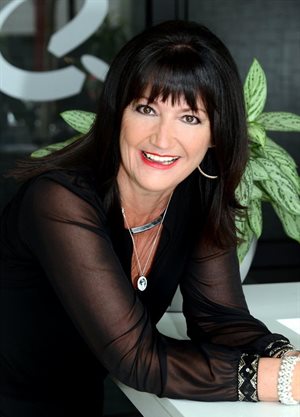
As the MD of Africa’s leading exhibition company, no two days are ever the same, which suits my personality as an entrepreneur.
Bringing events and concepts to life is what we do, so one minute we would focus on a creative concept, then it’s brainstorming with the teams, then we are calculating commercial models to ensure the events are viable and sustainable, then of course we focus on the logistics and operations, which in this industry is a mammoth task.
Lastly, we hold sales and marketing workshops, where we focus on our customers and their needs to ensure they receive a good return on investment by participating in our events. We run so many events in so many industry sectors that variety is a given.
Sounds exhilarating. Rewinding a bit, what did you want to be ‘when you grow up’, and what do you still plan to accomplish?
When I was eight-years-old, I wanted to drive a tank in the army, which in my day and age was never going to happen for me as a female. The army did write back and said “Sorry, you’re a girl,” so that was that. Thank goodness times have changed!
I did, however, get to drive a Sherman tank in Texas last year on one of my bucket list trips, so thankfully I finally reached my dream.
Going into adulthood, I had always known what I wanted to do and that was to develop ideas and concepts and make them happen. That is what I do today and still love doing.
Love that. You were also chairperson of AAXO until not too long ago. What does it take to succeed in this highly pressured industry?
I founded AAXO to help professionalise our industry, where members are held to account and have to provide audited figures on all their events, for example, and it’s about SA having access to international best practice so that we can continue to grow and develop our industry.
To succeed, you need a good idea that is fulfilling an industry’s need followed by in-depth market research, you then need to plan, plan and plan to ensure you have all the right tools e.g.: Realistic budget, robust sales and marketing plan, a great creative strategy and a detailed operations plan to ensure you can deliver on your promise to your customers.You need to be driven, focused and tenacious, you need to believe in and be passionate about your concept and, most importantly, belief in yourself that you can do this.
Understandably so. From the business side of things, how does putting together a lifestyle/gaming/comic expo differ from say, a tourism or more B2B-centric expo?
Running any events, whether business-to-business or business-to-consumer, has to bring buyer and seller together. We need to ensure that everyone gets the necessary return on their investment. All events are fun to run, and of course, something like Comic Con Africa, which is a really cool event, is a huge amount of fun as it’s quirky and very different.
However, putting together an event such as this is a huge undertaking, especially with 300 exhibiting companies, 200 content sessions/speakers, seven gaming tournaments and free play areas, three stages with various activities going on, a new Kidscon and Lego hall, awards, competitions and over 15 celebrities and comic book artists that need one-on-one attention!
It needs a big team and huge attention to detail. Comic Con Africa is more focused on the fans’ experience, but so should all events. It’s critical that even the B2B events are fun, experiential and informative.
Definitely. What can attendees expect from the Business of Gaming Forum?
Hosted alongside Comic Con Africa at Gallagher Convention Centre on 23 September 2019, The Business of Gaming Forum informs and showcases a wide range of opportunities and business pillars within the gaming industry, including branded gaming, esports and game development.
Speakers include inspirational international and local keynotes from pioneering business leaders and gaming subject matter experts who are already changing the landscape of their industry. The Forum is aimed at the various enterprises and pillars relevant to the gaming sector and for those looking to gain insight into the gaming industry and its massive potential.
We are inviting delegates who are not only industry heavyweights, but also business investors, marketers and agency representatives. The aim is to connect businesses and brands with this burgeoning entertainment sector and to bring together the entire gaming sector in Africa to learn, be inspired and exchange ideas with the established local and global players.
Excellent. Explain why it makes sense for the Forum to form part of Comic Con Africa and share successes from the first Comic Con Africa last year.
Comic Con Africa in Johannesburg in 2018 was a massive success. We sold out the show with 47,000 ABC-audited visitors from South Africa and the African continent and received incredibly high visitor satisfaction ratings.
We had 121 Cosplay Championship entrants, over 200 exhibitors, with over 100 hours of content, not to mention five international film and series actors, four international comic creators, and 11 local comic creators. In total, we had over 120 speakers who were on panels, held Q&A sessions and workshops, and we also hosted exclusive screenings.
Gaming is one of the pillars of our Con, and gaming is a rapidly growing market in South Africa.
Part of Comic Con Africa’s goals is to grow the pop-culture markets in South Africa, and with the interest in gaming picking up fast, we want to assist in enabling South Africa to become a gaming hub and capitalise on this exciting market. We have also recently announced Project Springbok, which will help to launch South African game developers showcased at the Con onto international selling platforms.
We were also approached to support Project Mosi, which is a supportive team up with international video game development and gaming studio startup veteran Mario Rizzo, to create the first AAA-title gaming development studio or hub in SA, with AAA being gaming speak for a “blockbuster” game.
They’ll bring the learnings of their international experiences, giving forum delegates insight into the international gaming ecosystem, while our local industry experts break down the African gaming ecosystem, allowing delegates to understand a global perspective on these elements.
Included in the lineup is also a strong contingent of non-South African, African-based speakers to share the broader African approach, bringing the focus closer to home like Emmanuel Oyelakin, CEO of Esports Nigeria and the League of Extraordinary Gamers; Youssef Mohsen, managing partner of Egypt’s number one esports team, DGL (Desert Gaming League); and of course our local esports commentator, Youtuber and gaming streamer Sam ‘Tech Girl’ Wright.
We see that the future of game development is extremely pertinent and strong. Thus, we have the Business of Gaming Forum to expose our local game producers, investors and marketers to international successes, trends, and ideas to support this exciting market.
Take us on a deeper dive into gaming culture in South Africa and the benefit for invested brands.
In 2017, for the first time, social and casual gaming revenue of R1.6bn overtook traditional forms of entertainment and will continue to grow at an even faster rate in South Africa, as indicated by the PWC Entertainment and Media: 2018 - 2022 report.
This shows the massive growth of the industry, which encompasses not only jobs for coders, but also conceptual artists, voice-over artists, animators, and storytellers among others. Esports sponsorships are increasing whilst traditional sports sponsorships are decreasing.
A branded game has a proven track record of engaging existing and potential customers for far longer periods than any traditional advertising form and local brands are starting to recognise the stickiness of this content.
Perceptions have changed dramatically – where gaming was seen as “just for kids” in South Africa, it is now acknowledged as a viable career, with Wits and Vega offering gaming design courses.
Spend is increasing, and mobile game platforms are particularly accessible to the average person in Africa meaning that there are fewer barriers to entering the world of gaming, no matter your income bracket.
Drilling into the African perspective in particular, how does Comic Con Africa differ from the other Comic Cons held around the globe?
Comic Con Africa has a lot of similarities to all the global cons, as this is what makes it truly global and special, but now it has an African flavour where we can showcase our amazing South African and African talent to the rest of the world. This is what makes platforms of this nature so critical.
It is where there is an opportunity to be marketed at a global level, which is generally all too rare. As an organisation, we have made the decision to put “fans first”.
We listen to them, engage and ensure we deliver meaningfully on what they need. It’s a world-class event with a local personality and it has something for the entire family.
Speaking of ‘local personality’, when you think ‘African comic book hero,’ you undoubtedly end up in a discussion of Marvel’s Black Panther. Explain the impact of Wakanda on local audiences, who may have otherwise not felt the comic book world is relevant to their lives.
Black Panther’s representation of African people in an African setting became part of showing both the world and local audiences that black representation holds weight with international audiences.
It spoke to black excellence, so under-represented in literature and cinema, and proved beyond a doubt to Hollywood that African narratives represented by African actors do have the power to generate profits – and it is money that talks to commercially-minded Hollywood and determines the direction of their productions.
Black Panther proved that the most basic tenets of humanity we are all so familiar with – love, vengeance, honour – are not dependent on the colour of a person’s skin, but on the connections we as humans all share.
Locally, this representation showed black children a mirror of themselves up on that big, internationally endorsed cinema screen.
It told them that they too have a place on the world’s stage and to feel empowered by the strong African men and women the film showcased in powerful positions.
This served as an introduction to the comic world in the most relevant way possible.
We can see the lasting effects when we consider the excitement generated around Comic Con Africa’s announcement of guests Black Sands Entertainment, an anime style of novel that seeks to normalise black excellence.
Sounds like the ideal balance of work and play. Visit the website for more information about Comic Con Africa 2019, and note that booking in advance is advised for the Business of Gaming Forum.










